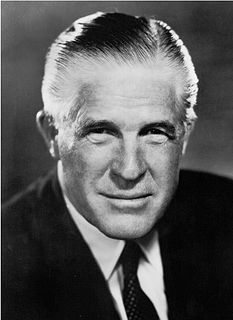A Quote by Rick Santorum
Big Business wants cheap labor costs.
Quote Topics
Related Quotes
In the Washington soft money game, big business and big labor are accomplices working together to protect the mushy middle of big government, with plenty of special interest plums: Big unions get big spending and big business gets corporate welfare and special tax breaks - all at the expense of average Americans.
We are entering a hyperconnected world where every boss now has more access, cheap access to cheap labor, cheap genius, cheap robot, cheap software, and then this world averages over. There is only one answer to that, and that is to get everyone as close as possible to some form of post-secondary education, it could be vocational, it can be liberal arts, it can be science and technology.
Well, I think we are seeing some shifts in manufacturing. China, when you go in and you talk to the big manufacturers there, the biggest problems in mainland China are recruiting and retention. There isn't an endless supply of cheap labor anymore in China. And it's now true that the labor rates in Mexico are lower than in China.
The consumer wants food to be as cheap as possible. The producer wants it to be as expensive as possible. Both want it to involve as little labor as possible. And so the standards of cheapness and convenience, which are irresistibly simplifying and therefore inevitably exploitive, have been substituted for the standard of health (of both people and land), which would enforce consideration of essential complexities.
Through an unwieldy combination of big government, big military, big business, big labor and big cities, we have created an unworkable mega-nation which defies central management and control. Not only is the United States too big, but it has also become too authoritarian and too undemocratic, and its states assume too little responsibility for the solution of their own social, economic, and political problems.
Cheap labor is a small part of the problem at work here. If it were only cheap labor, America would be in trouble. Because it's other things, too, we have a great chance to turn it around. Here's the problem: Our high corporate tax rate pushes our companies offshore. Our high regulatory burden pushes our companies offshore.

































